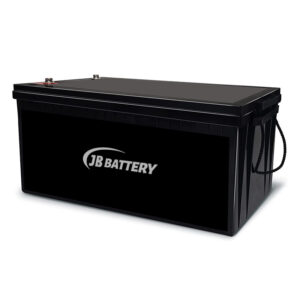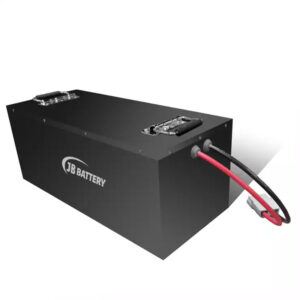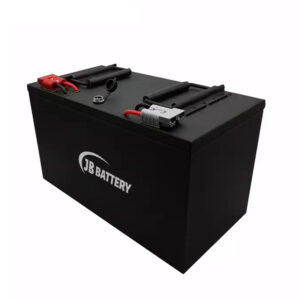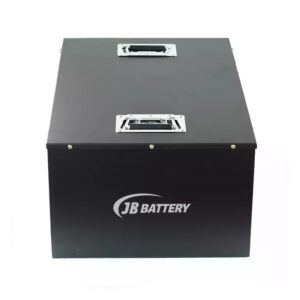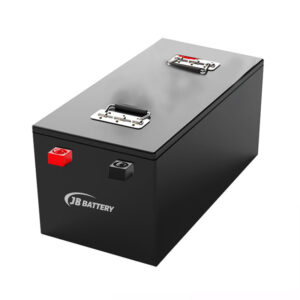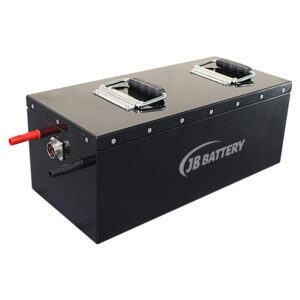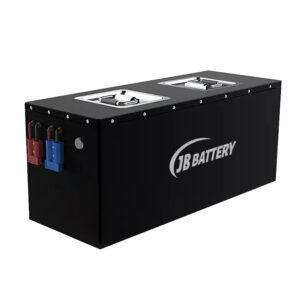Are Lithium Batteries Better?
Most of us are creatures of habit. We’ve been using the same kinds of lures and bait for years. Our favorite fishing poles are practically an extension of our hands, they’ve been with us so long.
But sometimes it’s in our best interest to trade in our old standbys for something newer and better. For example, a better battery for your boat or RV. Lithium is the “new kid on the block” when it comes to deep-cycle batteries. So you might ask yourself, “are lithium batteries better?”
We say “A thousand times yes!” But maybe you think we’re only saying that because our name is LithiumHub. So we’ve provided a rundown of the advantages of a lithium battery over traditional types below.
Advantages of a Lithium Battery
Ionic lithium batteries are built from lithium iron phosphate. They came on the scene in 1996, thanks to scientists at the University of Texas. The goal was to create a safer, more reliable battery. And they nailed it!
Now let’s nail down the advantages of lithium batteries:
Incredible Efficiency
Did you know that temperature fluctuations can affect battery performance? Traditional batteries like lead acid don’t handle them well. They also skimp on performance when their energy is depleted.
Lithium, however, takes on high-stress situations like a champ. You can charge and discharge lithium batteries at a high rate. They release and store high amounts of energy. That’s exactly what you want when you run your RV battery in extreme weather, or spend long hours running a trolling motor out on the lake.
Longest Lifetime of Any Battery
Wouldn’t it be nice to buy a battery and not have to replace it for say, 10 years? That’s what you get with lithium, the only battery rated to last 3,000-5,000 cycles. A cycle consists of charging and discharging the battery one time. So depending on how often you charge your lithium battery, it may last you even longer than 10 years.
Superior Charging Capabilities
One of the biggest advantages of a lithium battery is its lightning-fast charging capabilities. Want to go on an impromptu fishing trip, but your battery’s dead? No problem, with lithium you can get a full charge in two hours or less.
LiFePO4 lithium batteries are also superior in the way they charge. Since they include a Battery Management System (BMS), there’s no risk of overcharging or undercharging them. No battery babysitting needed– you can just plug it in and walk away. Some lithium batteries even come with Bluetooth monitoring that lets you see how much longer your battery will take to charge.
No Waste, No Mess
Maintaining traditional batteries can be a lot of work. But lithium batteries require none of the following nonsense:
Balancing process (Making sure all cells get an equal charge)
Priming: Discharging and charging completely after a buying a battery (or periodically)
Watering (Adding distilled water when the battery’s electrolyte levels drop)
Because of their ultra-safe chemistry, you can use, charge, and store lithium batteries anywhere, even indoors. They don’t leak acid or chemicals, and you can recycle them in your local battery recycling facility.
Lightweight & Compact
Lithium is the most lightweight, compact battery on the market. They provide the same amount or more energy than other battery chemistries, but at half the weight and size. This is why they’re a godsend for applications like small boats and kayaks that have limited space. They’re easy to install, and easy on your back, too!
Are lithium batteries better than lead acid?
Lead acid batteries have been the staple for deep cycle batteries for years. Mainly because of their inexpensive price tag. Let’s face it–lithium batteries do cost more up front. That’s one of the reasons why some boaters and outdoorsmen are wary about switching to lithium. So are lithium batteries better to the point of shelling out more greenbacks for them?
If you consider their long term cost, plus their many advantages over lead acid, then the answer is “yes”. Let’s do the math:
A lead acid battery costs less than a lithium battery. But you will have to replace it more often.
Lithium deep cycle batteries are rated to last 3,000-5,000 cycles or more. 5,000 cycles translates to around 10 years, depending on how often you recharge your battery.
Lead acid batteries last about 300-400 cycles. If you use them daily, they will only last a year or two.
This means that the average lithium battery will last as long as five lead acid batteries or more! Meaning your lead acid batteries will actually cost you more in the long run.
If you consider the advantages listed above, and the cost comparison to lead acid batteries, lithium batteries are better. They’re a better investment, and they will enhance your application’s performance.
JB BATTERY is a professional, rich experienced, and strong technical team of lifepo4 battery manufacturers, integrating cell + BMS management + Pack structure design and customization. It focuses on the development and custom production of lithium iron phosphate batteries.



